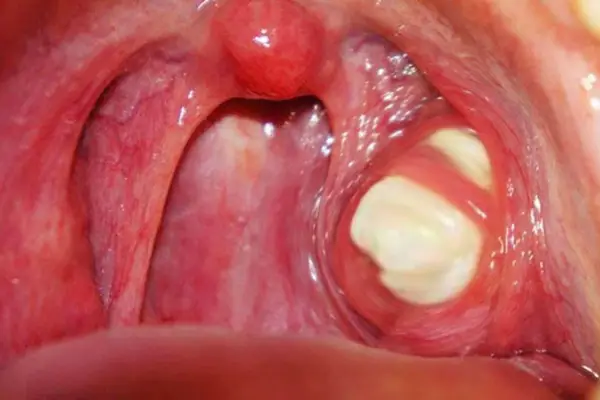Despite being designed for intranasal use, a small amount of the nasal spray can inadvertently be swallowed due to the natural connection between the nasal passages and the throat. Other cases may involve accidental spray in the mouth, especially by children. Whatever the case may be, there are concerns to be aware of.
The active ingredients in nasal sprays can serious adverse reactions but this is often not the case if only a small amount is ingested.
The effects of the nasal spray depend on the type (decongestant, steroid, antihistamine, anticholinergic, or cromolyn sodium) and brand of nasal spray, as each contains different active ingredients. Drug interactions also exist with various classes of medications.
It’s important to look out for any adverse reactions following accidental ingestion and consult a healthcare professional if any concerning symptoms arise. Let your doctor be aware of any medication you are taking alongside your nasal spray.
Nasal Decongestant Spray
Nasal decongestant sprays contain imidazole derivatives like oxymetazoline, naphazoline, tetrahydrozoline, and xylometazoline and if swallowed inadvertently, can have severe sympathomimetic effects like increased blood pressure, heart rate, nervousness, dizziness, tachycardia, sedation, and rebound nasal congestion.
These imidazole derivatives are found in products such as Otrivin, Vicks Sinex, and Afrin and their side effects can be more serious in children or with large amounts. You should avoid the use of sprays with these derivatives if you are allergic to them.
The FDA has issued warnings about the abuse and misuse of the nasal decongestant propylhexedrine, found in some Bendrex inhalers. Misusing propylhexedrine can lead to serious heart and mental health problems. Users should strictly follow the recommended dosage and use these products only as directed to avoid potential risks.
It’s crucial to avoid using these sprays with MAO inhibitors, a class of medications used for depression and Parkinson’s disease, or certain antidepressants to prevent increases in blood pressure. Other medications that affect blood pressure or heart rate should also be used cautiously.
Steroid Nasal Spray
Accidental ingestion of steroid nasal sprays, containing corticosteroids like budesonide, ciclesonide, fluticasone, flunisolide, mometasone, and triamcinolone, and fluticasone, is generally considered to be of low risk due to the minimal systemic absorption of these medications.
When steroid nasal spray is swallowed, the corticosteroids undergo significant first-pass metabolism by the liver, greatly reducing their systemic availability. This process ensures that occasional accidental swallowing is unlikely to result in significant side effects associated with systemic corticosteroid exposure, such as adrenal suppression.
Despite the low risk, it’s important to exercise caution, especially in children, as their smaller body size could potentially make them more sensitive to the effects of corticosteroids. However, the amount of corticosteroid in nasal spray doses is typically low, and serious effects from accidental swallowing are rare.
Prolonged exposure to large amounts could lead to symptoms of corticosteroid overexposure, such as immune suppression. Interactions with CYP3A4 inhibitors like ketoconazole can increase systemic levels of steroids, potentially leading to systemic steroid exposure and its associated side effects.
Nasal Antihistamine Spray
The systemic absorption of nasal antihistamines can lead to effects similar to those observed with oral antihistamines. If ingested by accident, one might experience drowsiness, fatigue, or dry mouth, which are common side effects of antihistamines when they are taken systemically.
However, given the relatively low doses present in nasal sprays, significant adverse effects from a single accidental ingestion are generally unlikely.
In the event that a nasal antihistamine spray is accidentally swallowed, especially if symptoms of overexposure occur or if a child ingests the medication, it’s important to seek medical advice. A healthcare provider can offer guidance based on the specific situation and the amount ingested.
These sprays should be used with caution alongside CNS depressants like alcohol or benzodiazepines due to potential enhanced sedative effects.
Intranasal Anticholinergic Spray
Intranasal anticholinergic sprays, such as ipratropium bromide, generally pose a low risk of serious side effects upon swallowing due to the limited systemic absorption of these medications when ingested orally.
These sprays are used to manage symptoms of rhinitis, including a runny nose, by blocking the action of acetylcholine, which reduces nasal secretions.
Ipratropium bromide sprays act locally within the nasal passages with minimal systemic exposure. Even when swallowed, the bioavailability of ipratropium bromide is low, significantly reducing the likelihood of experiencing systemic anticholinergic effects, such as dry mouth, blurred vision, constipation, or difficulty urinating.
However, in the rare event that a large amount is ingested, there might be a higher risk of these side effects, particularly in sensitive individuals or children due to their smaller body size and different metabolic rates.
Co-administration with other anticholinergic medications can amplify anticholinergic effects, increasing the risk of dry mouth, constipation, and urinary retention.
Cromolyn Sodium Nasal Spray
Cromolyn sodium works by stabilizing mast cells and preventing them from releasing histamine and other allergic mediators. When administered as a nasal spray, its primary action is localized to the nasal passages, and it has minimal systemic absorption.
This characteristic means that if cromolyn sodium nasal spray is accidentally swallowed, the systemic exposure is very low, and it is unlikely to cause significant side effects. The medication is not well absorbed by the digestive system, further reducing the possibility of systemic effects.
No significant interactions are known due to its mechanism of action.
Immediate Steps to Take After Swallowing Nasal Spray
Most nasal sprays contain medications that are intended for local effects within the nasal passages and have minimal systemic absorption when swallowed. This means that accidental ingestion is usually not immediately life-threatening except in the case of serious allergic reactions.
Drinking water or eating something can help dilute the substance that was swallowed. This can be particularly helpful if the nasal spray has an irritating effect on the throat or stomach.
Look at the nasal spray container to identify the active ingredients. This information can be very helpful for medical professionals in providing appropriate advice or treatment.
If any symptoms develop after swallowing nasal spray, or if a significant amount was ingested, it’s important to seek medical attention. Symptoms to watch for include difficulty breathing, severe throat pain, unusual drowsiness, vomiting, or any signs of a severe allergic reaction like swelling of the face, lips, tongue, or throat.
If the individual is a child, or if there are any concerns about the type and amount of nasal spray swallowed, it’s advisable to consult a healthcare professional or poison control center immediately at 1-800-222-1222.
Sources:
https://aaoallergy.org/you-want-me-to-spray-what-up-my-nose-%EF%BB%BF/
https://www.mims.com/philippines/drug/info/pulmodual-pulmodual%20mdi?type=full
https://www.webmd.com/drugs/2/drug-22051/cromolyn-oral/details





